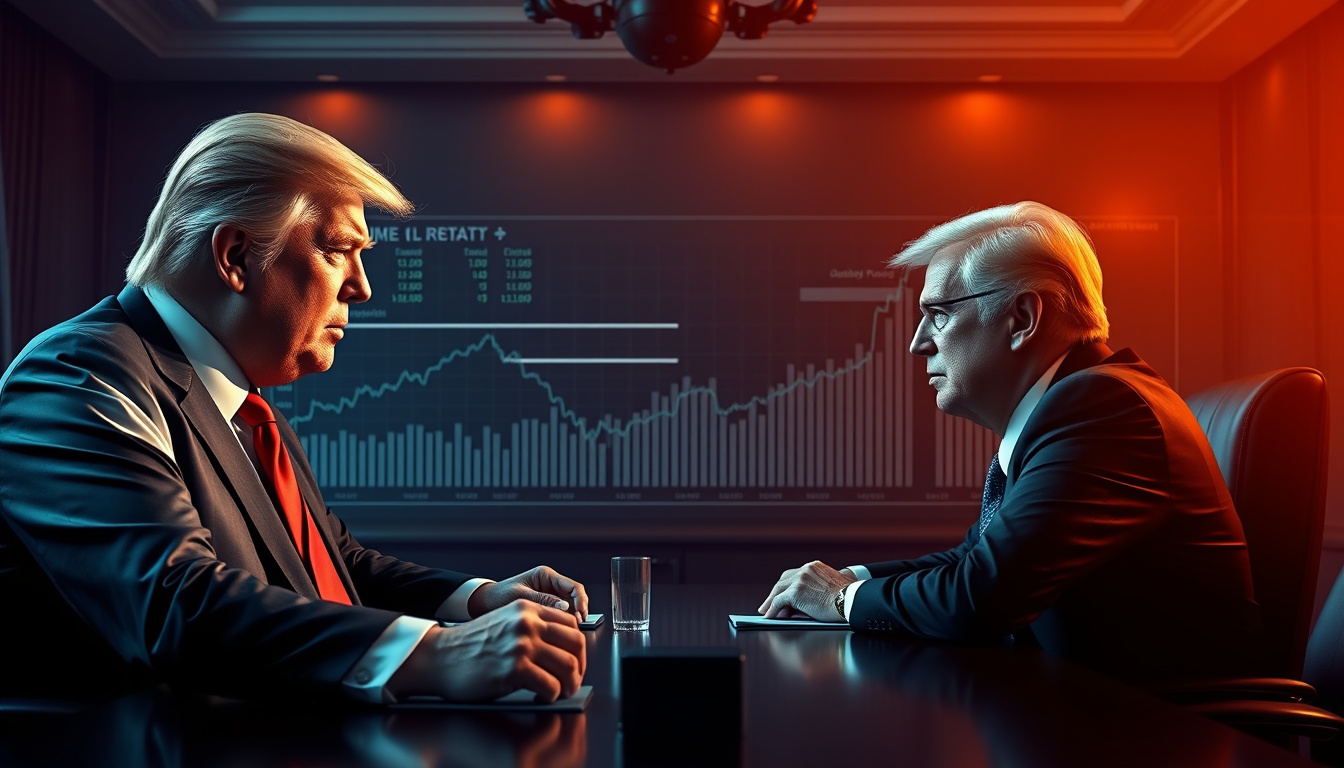The complex relationship between former President Donald Trump and Federal Reserve Chairman Jerome Powell has long been a point of contention and intrigue in American economic discourse. As Trump considers potential moves against Powell, it's critical to understand the nuances of their interaction, the political implications involved, and how it could reshape the financial landscape.
Trump’s Discontent with Powell
The origin of Trump's discontent with Powell can be traced back to late 2018 when the former president, who initially appointed Powell as Fed chair in 2017, began voicing frustrations over the Fed's monetary policy. His primary complaint centers around the Fed's decision to raise interest rates, which he perceived as detrimental to economic growth. Trump's consistent critique over the years suggested that he believed the Fed was making politically motivated decisions rather than adhering strictly to sound economic principles.
In his tweets and public statements, Trump asserted that the Fed’s actions were excessively tight, reflecting his desire for lower interest rates to stimulate borrowing and investment. As he argued, higher rates could hamper economic momentum, and many in the markets shared his concerns since they rely heavily on favorable monetary policies for growth.
A Broader Economic Landscape
The situation became more pressing in September 2019 when a sudden crisis in the U.S. repo market led to unexpected spikes in borrowing costs, forcing the Fed to step in with emergency liquidity and a decision to lower rates. This event served to validate Trump's earlier assertions and underscored the potential repercussions of an inflexible monetary policy on the broader economy.
Interestingly, the narrative around the Fed's political independence surfaced in the commentary of former New York Fed President Bill Dudley, who suggested that the Fed might need to consider the political landscape when making policy decisions. His unprecedented call for the Fed to act in a manner that might unfavorably impact Trump’s re-election bid in 2020 raised eyebrows, highlighting that even within the apolitical facade of the Fed, political considerations could seep into decision-making.
Possible Implications for Power and Policy
The political dynamics within the Fed became more scrutinized following a 2022 study revealing an overwhelming lean towards Democratic affiliations among Fed economists. This raises critical questions about the objectivity of the Fed’s policies and invites speculation about the influence of political ideologies on economic decisions.
Trump's assertion that Powell's Fed acted out of political motives may not be as baseless as it initially seemed. An environment where political heirs dictate economic levers can lead to significant risks and implications for market stability. The former president's desire to potentially replace Powell stems not just from frustration but from a strategic objective: to alter the trajectory of monetary policy in a way that aligns more closely with his economic philosophy.
The Concept of Bond Vigilantes
The term "bond vigilantes" refers to investors who sell off government bonds in response to policies they disapprove of, thereby exerting pressure on the government to change its fiscal stance. A notable recent example was the significant market turmoil in the UK, which accelerated after controversial budget proposals, leading to a swift political consequence for Prime Minister Liz Truss. Observing this situation, Trump's administration recognized the potential for similar volatility in the U.S. bond market, particularly if tensions between the White House and the Fed escalated.
In recent months, the U.S. bond market has displayed signs of volatility that could be interpreted as a form of "vigilante action," reflecting investor sentiments and political anxieties surrounding both the government and the Federal Reserve. With new Treasury bond sales apparently unaffected by broader market jitters, analysts are questioning whether recent volatility is more politically driven than economically justified.
Conclusion
The intersection of Trump's presidency, his contentious relationship with Powell, and the broader implications for monetary policy presents a multifaceted narrative that continues to unfold. As Trump explores avenues to replace Powell, the potential ramifications on financial markets, investor confidence, and the overall U.S. economy could be substantial. Understanding the hidden power struggle between these two figures is essential for anyone seeking to grasp the current state and future direction of economic policy in America. The stakes are high, and the implications of their conflict may resonate well beyond the corridors of power, ultimately influencing the financial lives of millions.
By Wolfy Wealth - Empowering crypto investors since 2016
[highlight=transparent]⚡️Exclusive research[/highlight]
[highlight=transparent] 📈 Early signals[/highlight]
[highlight=transparent] 📬 Weekly reports[/highlight]
[highlight=transparent] Just what you need to win in crypto. [/highlight][highlight=transparent]Click [/highlight]Here
Disclosure: Authors may be crypto investors mentioned in this newsletter. Wolfy Wealth Crypto newsletter, does not represent an offer to trade securities or other financial instruments. Our analyses, information and investment strategies are for informational purposes only, in order to spread knowledge about the crypto market. Any investments in variable income may cause partial or total loss of the capital used. Therefore, the recipient of this newsletter should always develop their own analyses and investment strategies. In addition, any investment decisions should be based on the investor's risk profile.

